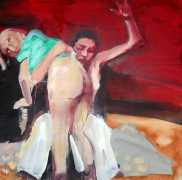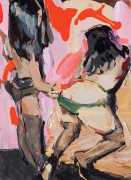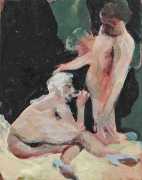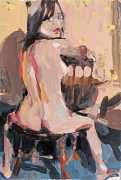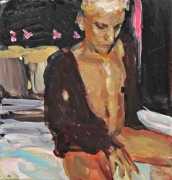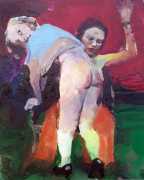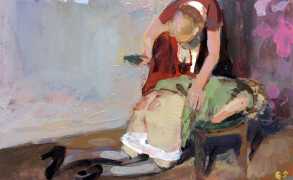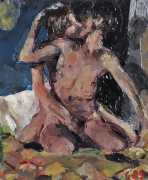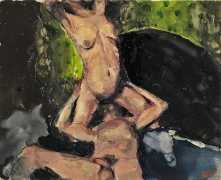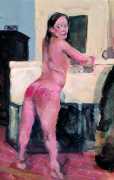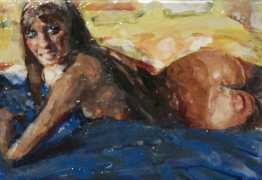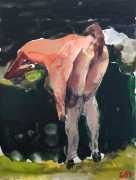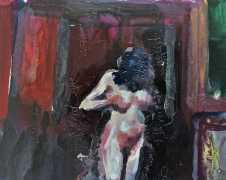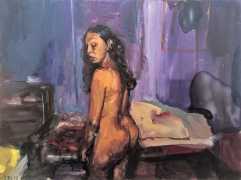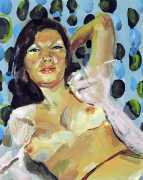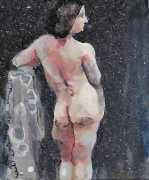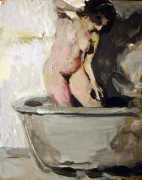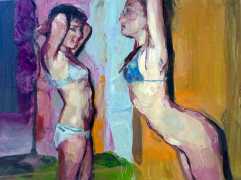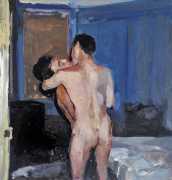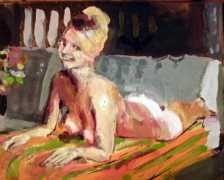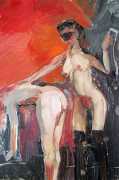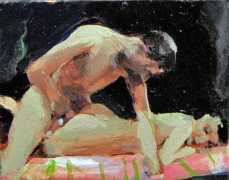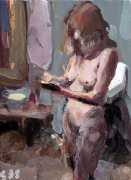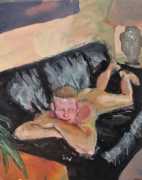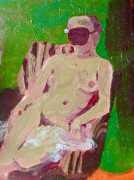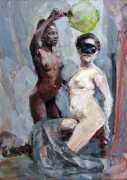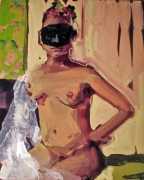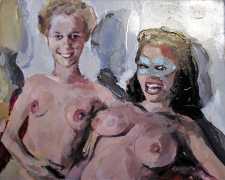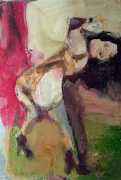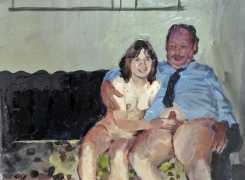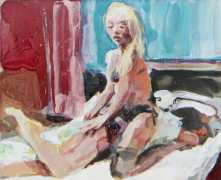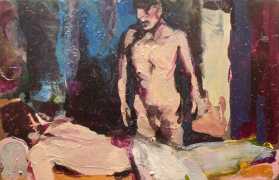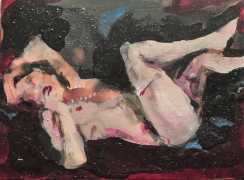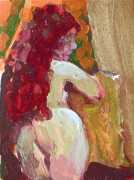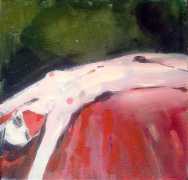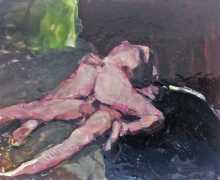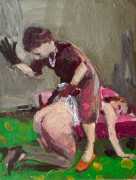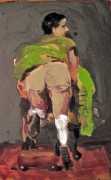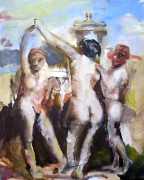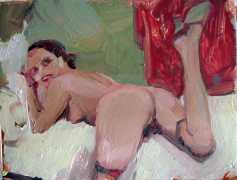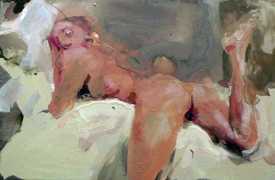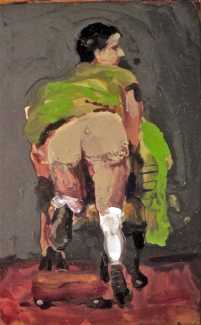
In September 2020 the art magazine Artlyst did an interview with Geraldine Swayne; you can read the whole interview here. One of the questions was about the advantages of working on a small scale – here are Geraldine’s replies to that and a few other important questions.
You work in a wide range of scale from micro-miniature to large – can you talk a little about the challenges involved with size, and does it matter?
There was a panel talk at Turps recently for the ‘Women Can’t Paint’ show, including myself, Rebecca Fortnum and others. Size came up in the debate, inevitably, as it is actually an issue in women’s painting. Rebecca Fortnum was I think accurate when she posited that women painters are often reluctant to take up too much space with their work. This resonates with me. My miniatures feel private and without the pressure of exposure, which frees me from over-producing the subject matter. I love small paintings because they are meant for private places and close up scrutiny. Painting small also suits my temperament, which is to work fast and repeatedly on the same passages, but without getting tired. I use enamel for the miniatures which have a fast-drying, cumulative effect, which I like.
Which artists have been your key influences?
Degas, Holbein, Kitaj, Dumas, G.F. Watts, David Octavius Hill and Robert Anderson, Bacon and Jarman.
What was the defining moment in your career that led you to figuration and portraiture?
My father gave me a little book of David Octavius Hill and Robert Anderson prints, which completely blew my ten-year-old mind. I still have it, and still refer to it. There was something so mysterious about the faces; I used to stare at it for hours and try and draw from it.
What is your advice to other artists trying to break through in the world of art?
Fall in love with something and engage with it, without too much concern as to whether it fits in anywhere, because you have to be true to yourself or it’ll never sit right. When you’re doing your thing, it’ll generate its own gravitational force, and you’ll be able to keep working whether it’s fair weather or foul. Stay in the studio rather than socialising too much, because if you’ve got the work you can let it do all the talking for you, which is much better than trying to convince people you’re going to make important work one day.


